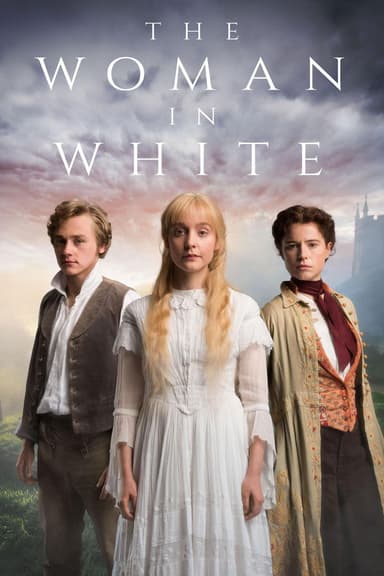
David Copperfield
1986 • Drama
A young man journeys from a difficult childhood to maturity, exploring social injustice, personal development, and the complexities of human relationships.
Why you should read the novel
Reading Charles Dickens' 'David Copperfield' offers a deeply immersive experience, allowing you to truly inhabit the protagonist's mind. Unlike a TV series, the book reveals Copperfield's inner thoughts, his fears, and his moments of triumph, all through Dickens' vivid, evocative prose. This personal connection with David is something only the novel can fully provide.
Dickens masterfully weaves memorable characters with intricate social commentary, creating a multi-layered world teeming with life and nuance. The novel enables readers to appreciate subtle transformations and motivations that may be abbreviated or visualized differently in a televised version. Engaging directly with Dickens' writing style allows for a richer understanding of the themes of resilience, self-discovery, and compassion.
Lastly, the joy of reading the original novel comes from uncovering its humor, pathos, and the sheer artistry of Dickens' language. Every chapter reveals literary treasures missed by fast-paced adaptations. For those seeking the complete, authentic journey, the book stands unmatched, promising a rewarding and transformative experience.
Adaptation differences
The 1986 TV adaptation of 'David Copperfield' necessarily condenses the extensive narrative of Dickens' novel. Many subplots and side characters are either omitted or have their roles significantly reduced. This streamlining alters the complexity of Dickens' world, prioritizing the main plot over the rich tapestry of secondary stories and social commentary found in the original book.
The series also tends to simplify character development, focusing mainly on David and the most dramatic supporting figures, such as Uriah Heep and Steerforth. Meanwhile, characters like Mr. Micawber, Traddles, and Dora’s family often receive less screen time and development. The subtleties of their relationships and character arcs—integral in the book—are compressed or glossed over to fit the constraints of television.
Additionally, the adaptation may alter or omit scenes crucial to the novel’s tone and themes. For example, the book's introspective moments, humor, and detailed descriptions of Victorian society are difficult to translate fully onto the screen. The inner struggles and personal growth that David undergoes across decades are depicted more hastily, resulting in a less nuanced portrayal of his maturation.
Finally, the TV series is limited by the formats and sensibilities of 1980s television. Certain subject matter—such as the harsher aspects of child labor, poverty, and the class system—is softened or treated less explicitly than in Dickens’ forthright prose. As a result, some of the novel’s social criticism and emotional impact are inevitably diminished, making the adaptation less resonant for those seeking the full depth of Dickens’ vision.
David Copperfield inspired from
David Copperfield
by Charles Dickens















